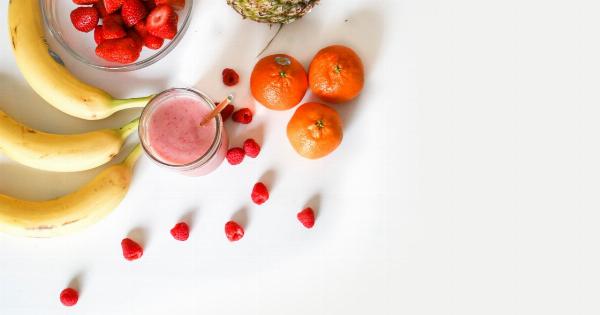During pregnancy, it is crucial to pay attention to your nutritional needs as they directly affect the health and well-being of both you and your growing baby. Iron is one of the essential nutrients that becomes even more critical during pregnancy.
In this article, we will explore why iron is important during pregnancy and how you can ensure you are getting enough of it.
What Does Iron Do in the Body?
Iron is a mineral that plays a vital role in our bodies. It is an essential component of hemoglobin, a protein in red blood cells that carries oxygen from the lungs to the rest of the body.
Iron is also necessary for proper immune function and the production of collagen, a protein that supports the growth and repair of tissues.
When you are pregnant, your blood volume increases significantly to support the needs of your growing baby. This increased blood volume requires a higher amount of iron to maintain adequate hemoglobin levels.
Iron is also necessary for the proper development of your baby’s brain and overall growth.
The Risk of Iron Deficiency During Pregnancy
Iron deficiency during pregnancy can lead to a condition called iron deficiency anemia. Anemia occurs when your body doesn’t have enough red blood cells to provide sufficient oxygen to your tissues and organs.
Some common symptoms of iron deficiency anemia include fatigue, weakness, shortness of breath, dizziness, and pale skin.
Iron deficiency anemia during pregnancy can have serious implications for both you and your baby. It increases the risk of premature birth, low birth weight, and developmental delays in the baby.
Iron deficiency can also leave you feeling exhausted and limit your ability to carry out your daily activities.
How Much Iron Do You Need During Pregnancy?
The recommended daily intake of iron for pregnant women varies depending on the country and individual circumstances. In general, pregnant women are advised to consume around 27-30 milligrams of iron per day.
This amount is higher than what non-pregnant women typically need, as the body requires more iron to support the expansion of blood volume and the development of the baby.
It is important to note that not all iron is created equal. There are two types of dietary iron: heme iron and non-heme iron. Heme iron is found in animal-based sources, such as red meat, poultry, and fish.
It is more easily absorbed by the body compared to non-heme iron, which is present in plant-based foods such as leafy greens, legumes, and fortified cereals.
To optimize iron absorption, it is recommended to consume heme iron along with a source of vitamin C. Vitamin C enhances the absorption of non-heme iron and can be found in foods like citrus fruits, strawberries, bell peppers, and broccoli.
Tips for Increasing Iron Intake During Pregnancy
Here are some practical tips to help you increase your iron intake during pregnancy:.
1. Eat Iron-Rich Foods
Include a variety of iron-rich foods in your diet. This can include lean red meat, poultry, fish, legumes, tofu, spinach, broccoli, quinoa, and fortified cereals. Aim to have at least one iron-rich food in each meal.
2. Pair Iron-Rich Foods with Vitamin C
As mentioned earlier, vitamin C enhances iron absorption. Pair foods rich in non-heme iron with fruits high in vitamin C. For example, have a spinach salad with strawberries or a tofu stir-fry with bell peppers.
3. Avoid Certain Food Combinations
Some foods can inhibit iron absorption. Avoid consuming high-calcium foods, like dairy products, at the same time as iron-rich foods, as calcium can interfere with iron absorption.
Similarly, tea and coffee are known to decrease iron absorption, so it’s best to avoid them during or immediately after meals.
4. Consider Iron Supplements
If you are struggling to meet your iron needs through diet alone, your healthcare provider may recommend iron supplements.
It is important to consult with them before starting any supplementation to determine the appropriate dosage and ensure it will not interact with any other medications or conditions.
5. Cook with Cast-Iron Cookware
Cooking acidic foods, like tomato-based dishes, in cast-iron cookware can increase the iron content of your meals. The iron leaches into the food during cooking, providing an additional source of dietary iron.
Monitor Your Iron Levels
Regular monitoring of your iron levels during pregnancy is essential to ensure that you are maintaining adequate levels. Your healthcare provider can order a blood test to check your hemoglobin and ferritin levels, which indicate your iron status.
If your levels are below the recommended range, they may suggest adjustments to your diet or iron supplementation.
The Bottom Line
Iron is an essential nutrient during pregnancy that supports the increased blood volume and the proper development of your baby. Iron deficiency can lead to anemia and have detrimental effects on both you and your baby.
By consuming a varied diet rich in iron and pairing it with vitamin C, you can increase your iron absorption. If needed, iron supplements can be prescribed by your healthcare provider. Remember to monitor your iron levels regularly and seek professional advice for individualized recommendations.































